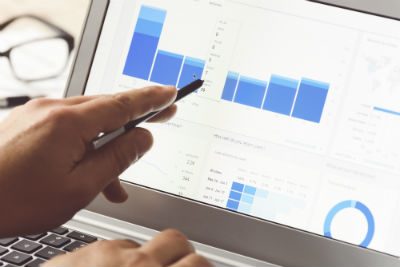
There’s no point in using a project and time tracking software if you don’t know what to pay attention to. These tools will give you an enormous amount of data, and it’s not really possible to track everything.
Before you start looking into analytics, you must figure out what is important for you and which data can help you improve your business. Looking at all the features time tracking software has, it can be alluring to go ahead and track them all, but that won’t get you very far. You’ll end up wasting time analysing data that is in no way useful.
This is exactly why we wrote this post. To help you explore which data should you be tracking with your work time tracker, and why.
Who’s Working on Projects and Tasks
Even the basic time trackers will give you an overview of which one of your employees is in charge of which project or task. You can check this in your weekly/daily reports, or in real-time.
Thanks to this handy feature you can easily see who’s handling design, who’s in charge of writing the creative copy, and who will do analytics. This data helps with accountability, rewards, and helps you see which of your employees are most efficient, so you can delegate tasks to them in the future.
How Much Time Does It Take to Finish Something
Another great feature of a work time tracker is that you’ll be able to clearly see how much time it takes to finish a certain task, or a specific type of project.
Why is this important? First of all, you’ll be able to improve your future project estimates – which can make or break the acquisition of new clients. Additionally, by tracking this data on a daily basis, you can check the project progress within seconds, without bothering your employees and their workflow.
Billable and Non-Billable Hours
Employee time records can show you how much time your team spent on billable and non-billable activities. By tracking billable hours you’ll be able to accurately charge your clients for every single minute of your work. Furthermore, all your employees will be paid fairly based on the number of hours they’ve put in.
But you shouldn’t stop at tracking billable hours only, track the non-billable ones as well. Why? Well, so many things in your company are non-billable, and you should track them to compare how much time your team spends on unprofitable tasks.
By having this insight, you can determine if there are non-billable tasks that can be automated, or in other ways optimized to speed up the delivery. Minimizing non-billable tasks and maximizing billable ones will help your company achieve ultimate profitability.
Software Usage
You should definitely track which software are your employees using. We’re certain you’re paying for 5+ different tools, for different teams. However, it’s possible that not all of them are being used.
Tracking software usage with a work time tracker will show you if your paying for software that nobody uses. This will for sure help you cut down software costs, and use that budget for something better.
Wrap Up
Having an online employee time tracking tool and knowing how to use it are two very different things. Sure, any company can pay for the software and install it on different computers. However, you must be aware that such software tracks everything employees do, and that there are too many data points you can focus on.
Focusing on “wrong” data points won’t help your business improve, and you certainly won’t see a good return on investment in this case. Which is why we recommend that you create a list of 5-7 data sources to track so you can improve your business processes.
Written by Bojana Djordjevic, Content Writer @ Workpuls










